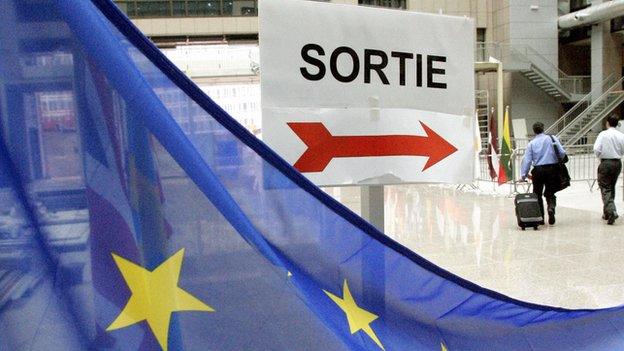Sizing up Britain’s EU renegotiation
- Published
- comments
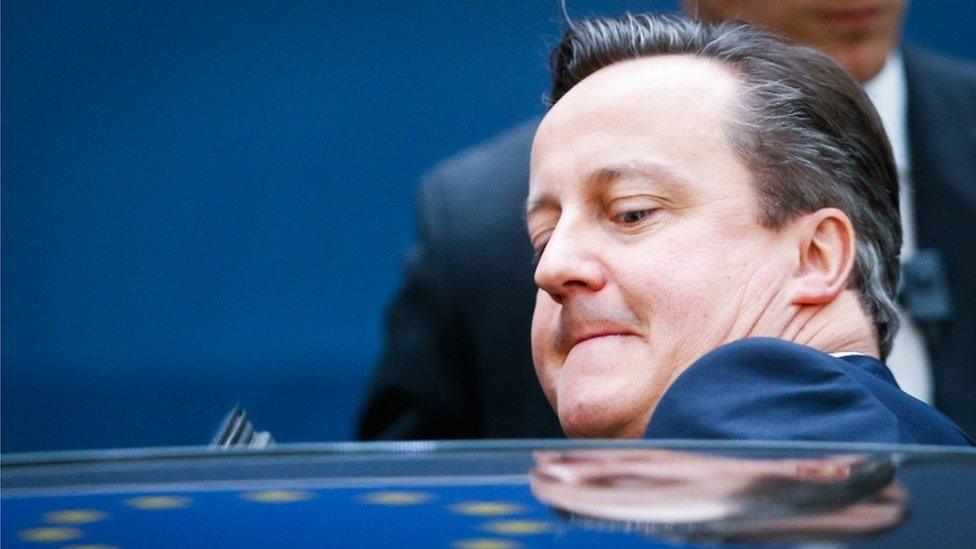
David Cameron hopes to secure a deal to keep the UK within the EU
In less than a month, the prime minister is expected to have secured a deal he can put to the British people over the country's future in Europe .
The deal is not done - but, cabinet ministers say, "essential pieces" of renegotiation are in place.
Over the next two weeks there will be a huge push to unpick the remaining tangles in time for lawyers and Brussels officials to draft a document that will be placed before the heads of government at the 18 February summit.
The President of the European Council, Donald Tusk, has already signalled he will be tabling "concrete proposals".
Those who want Britain to stay in the EU will try to focus the debate on what "leaving" would mean for the British economy, to tell voters that the risk is "jumping into the void".
So far, almost nothing has been said about what the negotiations to leave the EU would involve.
But, in the heat of a summer campaign, those in favour of leaving will denounce David Cameron's deal, presuming Europe's leaders accept the package, as little more than symbolic.
And voters will be asked to judge:
Will it have changed Britain's relationship with the EU?
Will it have established the EU accepts different levels of membership?
Will the EU itself be reformed?

Key objectives
At the outset, David Cameron framed his ambition as delivering a "renegotiation for fundamental change", saying the UK's "best future lay within a reformed EU".
Last November, he formally set out his demands in a letter to Mr Tusk, saying four objectives lay at the heart of the UK's renegotiations:
protecting the single market for non-euro countries
boosting competitiveness with a target for cutting the "burden" of red tape
exempting Britain from "ever-closer union", and bolstering national parliaments
restricting EU migrants' access to in-work benefits such as tax credits
Later, he said: "This is perhaps the most important decision the British people will have to take at the ballot box in our lifetimes.", external
But "fundamental change" is a high ambition.
The Foreign Secretary, Philip Hammond, defined the test rather differently, external.
"Have we," he asked, "passed the high-water mark of EU intervention in our national life?"

Cutting red tape
Mr Cameron has championed this cause.
And his demands chime with, at least, the words coming out of Brussels.
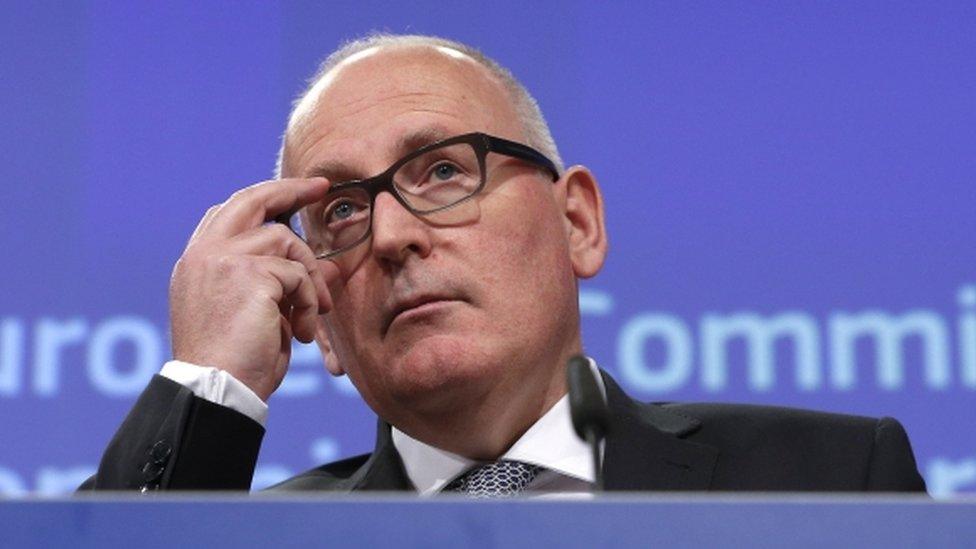
Frans Timmermans has launched a drive to improve EU regulation
The Vice-President of the Commission, Frans Timmermans, has launched a "better regulation" agenda.
Eighty pending pieces of legislation have been withdrawn or modified.
But how will this agenda be implemented?
What guarantees are there the EU will stop interfering in areas better handled by national governments, and how will the deal negotiated by Mr Cameron advance that?
And, as importantly, how will the deal ensure the single market - so important to the UK - is extended into services and the digital economy?

Sovereignty
For many Eurosceptics, this is the key issue.
They will judge the deal on what powers will be returned to the UK.
The other countries appear to have conceded an optout to "ever-closer union" but not without objections.
The fear is of creating a domino effect, with other countries claiming the same optout.
Mr Cameron will say the optout shows the UK has left the path leading to a United States of Europe.
But the reality is that European integration is forged incrementally.
And some will see it as little more than an act of symbolism.
Mr Cameron has also said the deal must make it clear "our Parliament is sovereign".
At present, there is a yellow-card system, where a number of countries can insist on the reconsideration of a European Commission measure.
It has been used two or three times at most.
Mr Cameron wants a red-card system, where a group of countries can block EU legislation.

Protecting the single market for non-euro countries
For the Chancellor of the Exchequer, George Osborne, this is the central plank of the renegotiation.
The government accepts the eurozone, if it is to survive, will need to integrate further.
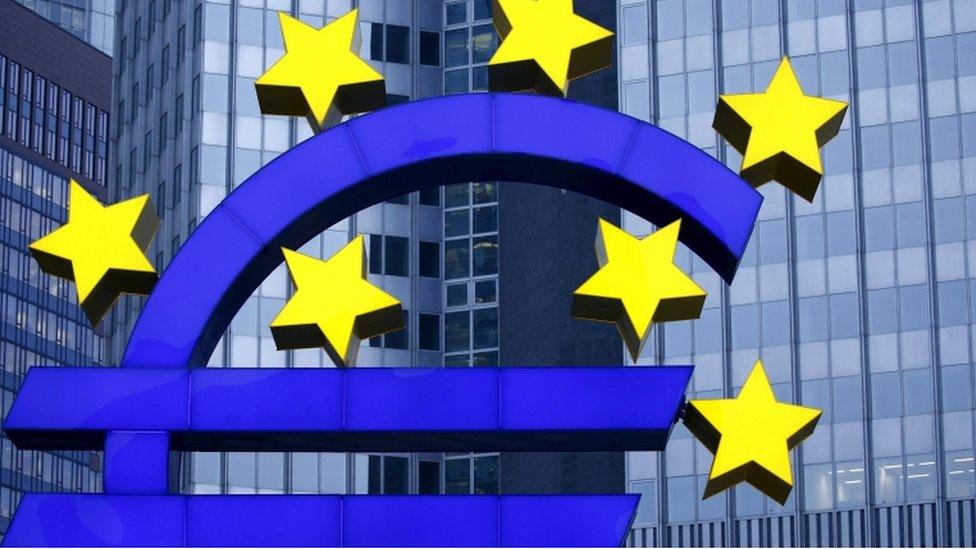
The UK wants protection for countries that do not sign up to the euro
What it wants to ensure is eurozone countries do not adopt rules that might damage the single market or the City of London.
The French suspect the real British motive is to engineer an optout for the City.
Even so, there has been progress.
The test here will be the strength of the mechanism protecting the interests of non-euro countries.
It will be a hard one for voters to judge.
As part of this, the government wants recognition the EU is a multi-currency union.
The aim, eventually, would be to have that written into the treaties.

Migration
This is the most difficult demand.
When Mr Cameron set out his initial ambitions, in his Bloomberg speech, immigration was not mentioned.
But as the May 2015 election approached, it rose up the agenda and a commitment to cut the numbers of migrants was a political response to the rise of UKIP.
In relation to the EU renegotiation, the aim remains to cut the numbers of EU migrants.
The government has focused on what Mr Osborne said "would remove the unnatural draw of the welfare system".
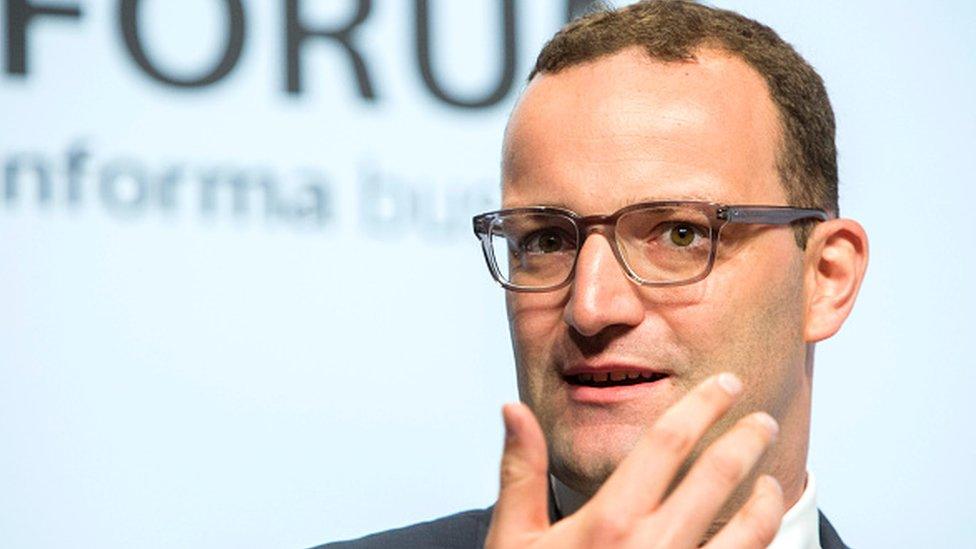
Jens Spahn has spoken out against social-welfare migration in the EU
The plan is EU migrants would be denied in-work benefits for four years.
But there is very little evidence migrants travel to claim benefits or that it influences their choice of country.
So the impact on immigration is likely to be slight.
Also, any restriction that treats EU migrants differently from UK citizens is likely to be judged discriminatory, as it challenges the right to move freely within the EU to find work.
Initially, there was almost total resistance to this demand.
It was seen as threatening a pillar of the EU - freedom of movement.
Time and again, Europe's leaders have insisted they will not accept the undermining of the EU's basic freedoms.
Events, however, have strengthened Mr Cameron's hand.
As the migrant crisis has deepened, other countries are looking for any measures that might cut numbers, including from within the EU.
"We don't want social-welfare migration within the EU," said one German minister, external.
Eastern and Central European countries are fiercely opposed to any change that might treat their citizens differently.
And yet the Polish president has called for "cautious compromise".
So what might this compromise be?
Officials and lawyers are scrutinising the Citizens' Rights Directive that sets out the rights of people moving within the EU.
The challenge is to find new legislation that would apply equally to migrants and UK citizens and students returning from abroad.
It is proving very difficult.
But the will is there to succeed.
Indeed, several countries, including France and Germany, have indicated they might introduce similar reforms.
Any new law would have to be legally binding and irreversible and eventually backed by treaty change.
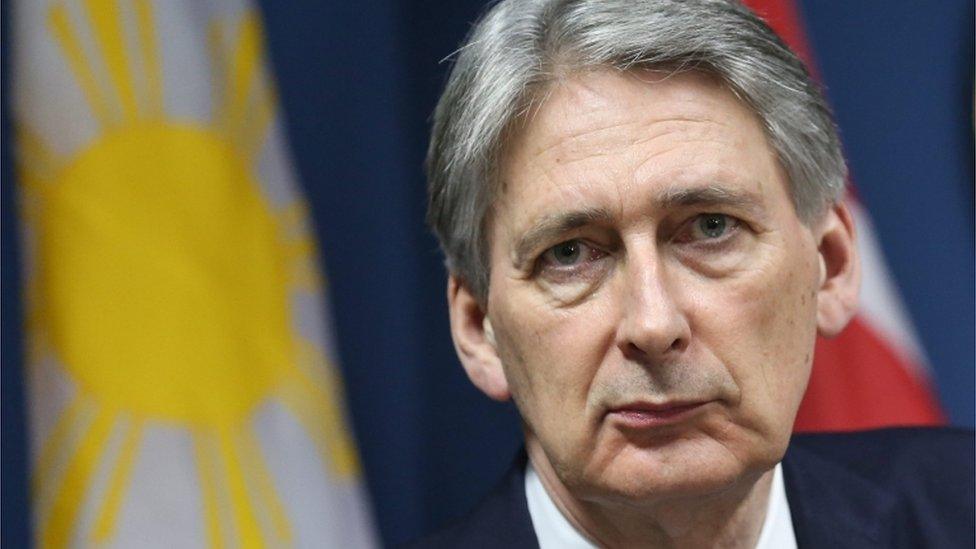
Philip Hammond has questioned the extent of influence of the EU in national life
For the government, the issue of migration has become totemic.
And it is, perhaps, key to the outcome of the referendum campaign.
The test will be whether voters believe fewer migrants will be drawn to the UK.
The far greater challenge is the number of migrants coming to Europe from the Middle East and Africa.
The EU is considering changing the Dublin rules, where the responsibility for migrants rests with the country in which they first arrived.
Any change is likely to increase burden-sharing within the EU.
Even though the UK has an optout, the government fears the referendum will turn into a vote on immigration.
- Published30 December 2020

- Published17 February 2016
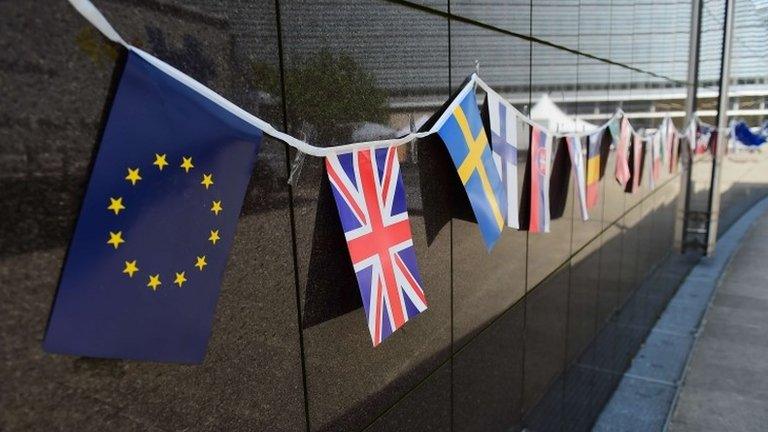
- Published11 November 2015
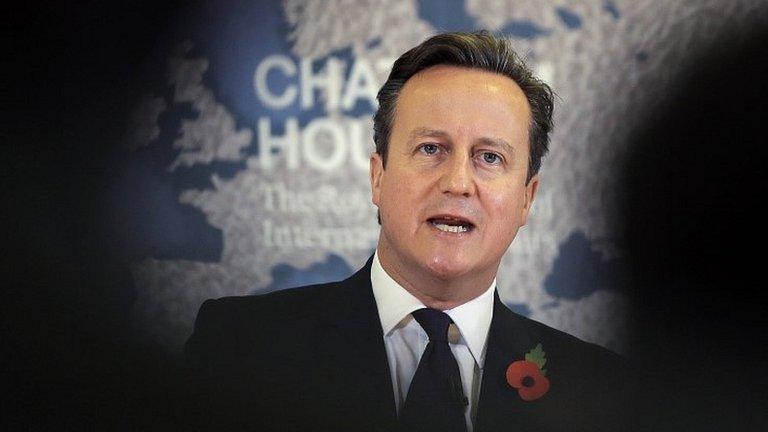
- Published26 May 2016
